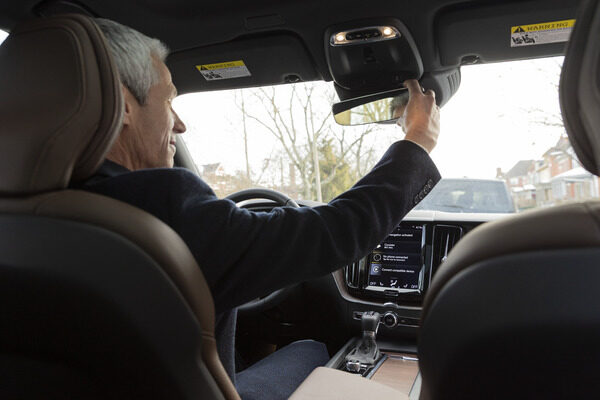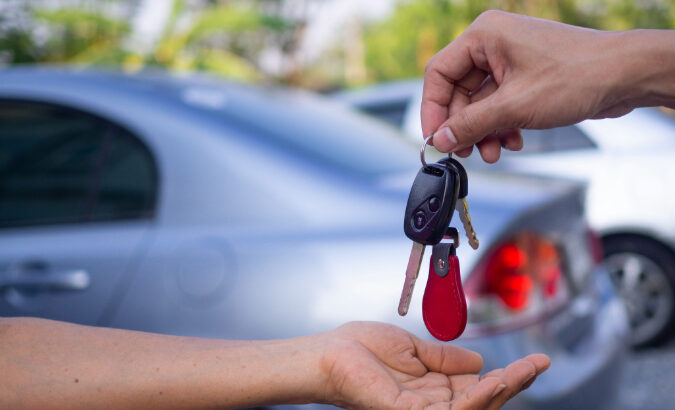
If you feel your car shaking or vibrating when you brake while driving, it could be a sign that you have a bad rotor. The rotor is part of a car’s brake system. It spins while your car moves; when you want to slow down, brake pads press against the rotors to slow your car. If your rotors aren’t in the best condition, they can cause problems. [1]
What are brake rotors?
One of the most essential parts of your car’s braking system, the rotors’ primary purpose is to slow down your wheels using friction. Your car has four rotors, each one connected to a wheel. Without rotors, your car couldn’t stop or slow down. Rotors are made from iron, so they are durable but still require maintenance and the occasional replacement. [2]
What causes worn brake rotors?
There are many things that can cause warped or worn brake rotors, including:
- Extreme heat: The friction that comes from the brake pads clamping down on the rotors can create extreme heat, which can cause the rotors to warp.
- Braking excessively hard: Stop-and-go traffic or extreme braking can cause the rotors to warp from excessive friction.
- Not maintaining your vehicle: If your brake system isn’t regularly cleaned and checked, this can lead to a buildup of debris.
- Rough roads: Obstacles in the road, such as potholes and speed bumps, can cause stress on your rotors.
- Rotor defects: If rotors aren’t manufactured properly, they may be more likely to warp under heat and stress. [3]
What can indicate that you have bad rotors?
The main signs that might indicate your rotors have gone bad are feeling your car shaking or vibrating. Strange noises coming from your car, such as squeaking or grinding, might also be indicators that the rotors are the problem. If you experience these symptoms, it might be time to take your car in to get checked by a professional. Here are other signs that your car’s rotors might not be working correctly:
Loud brakes
When you brake, if you hear loud banging, this could be because your rotor is cracked. If you check the rotor and this is the case, make sure that you bring your car to a professional to replace it immediately because this could cause accidents if left cracked. [1]
Car vibration
If your rotors are rusting or imbalanced from overheating, this can cause your car to vibrate while trying to brake. Immediately take your car to a mechanic to evaluate whether the rotors need to be repaired or replaced. [1]
Blue tint brakes
If your brake rotors are turning blue, this can be a sign that there is something wrong with your brakes. The blue tint is a sign that the discs are hot and their structure could have changed. It’s important to take your vehicle to a professional immediately to have it repaired or replaced. [4]
Car taking a long time to stop
One of the signs that your brake rotors are warn is if your car is taking a longer time to stop than usual. This is caused by uneven surfaces on the worn brake rotors, giving brake pads less surface to brake. [1]
Brake pedal pulsating
When braking, if you feel the pedal pulsing, this could be due to rust on the rotors or uneven surfaces. The pulsing will most likely come from problems in the front and rear brake rotors. However, if you feel shaking in the steering wheel, there could be an issue with the front brake discs. [1]
If you feel any shaking, loud noises, vibrating, pulsing or even if the car isn’t starting, take it to a professional. The problem is could be the car’s rotors warping, and if so, they may need to be replaced or repaired.
Sources:
[1] “Understanding Bad Rotors: Signs and Symptoms,” nubrakes.com/blog/bad-rotors (accessed July 31, 2023).
[2] “What Are Rotors On A Car?” Dustin Hawley, jdpower.com/cars/shopping-guides/what-are-rotors-on-a-car (Feb. 25, 2021).
[3] “What Causes Brake Rotors to Warp?” lawrencevilleautocenter.com/blog/what-causes-brake-rotors-to-warp (July 27, 2022).
[4] “Break rotors (discs) are turning blue,” wheelswisdom.com/kb/brake-rotors-are-turning-blue (accessed July 31, 2023).
Disclaimer:
The information included here is designed for informational purposes only. It is not legal, tax, financial or any other sort of advice, nor is it a substitute for such advice. The information may not apply to your specific situation. We have tried to make sure the information is accurate, but it could be outdated or even inaccurate in parts. It is the reader’s responsibility to comply with any applicable local, state or federal regulations. Nationwide Mutual Insurance Company, its affiliates and their employees make no warranties about the information nor guarantee of results, and they assume no liability in connection with the information provided. Nationwide, the Nationwide N and Eagle and Nationwide is on your side are service marks of Nationwide Mutual Insurance Company. © 2024 Nationwide



